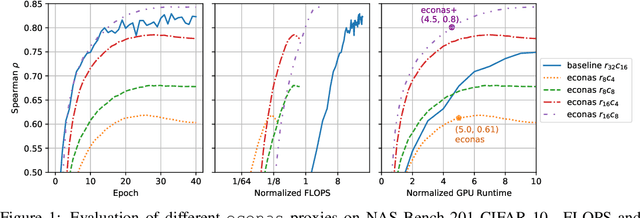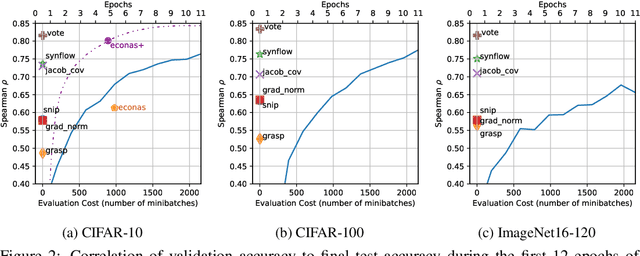Zero-Cost Proxies for Lightweight NAS
Paper and Code
Jan 20, 2021



Neural Architecture Search (NAS) is quickly becoming the standard methodology to design neural network models. However, NAS is typically compute-intensive because multiple models need to be evaluated before choosing the best one. To reduce the computational power and time needed, a proxy task is often used for evaluating each model instead of full training. In this paper, we evaluate conventional reduced-training proxies and quantify how well they preserve ranking between multiple models during search when compared with the rankings produced by final trained accuracy. We propose a series of zero-cost proxies, based on recent pruning literature, that use just a single minibatch of training data to compute a model's score. Our zero-cost proxies use 3 orders of magnitude less computation but can match and even outperform conventional proxies. For example, Spearman's rank correlation coefficient between final validation accuracy and our best zero-cost proxy on NAS-Bench-201 is 0.82, compared to 0.61 for EcoNAS (a recently proposed reduced-training proxy). Finally, we use these zero-cost proxies to enhance existing NAS search algorithms such as random search, reinforcement learning, evolutionary search and predictor-based search. For all search methodologies and across three different NAS datasets, we are able to significantly improve sample efficiency, and thereby decrease computation, by using our zero-cost proxies. For example on NAS-Bench-101, we achieved the same accuracy 4$\times$ quicker than the best previous result.
 Add to Chrome
Add to Chrome Add to Firefox
Add to Firefox Add to Edge
Add to Edge